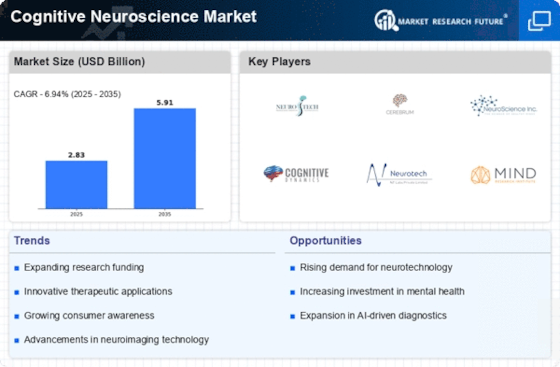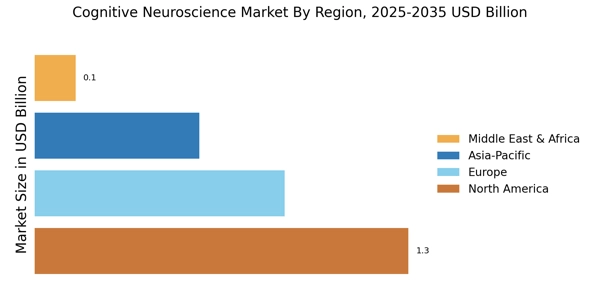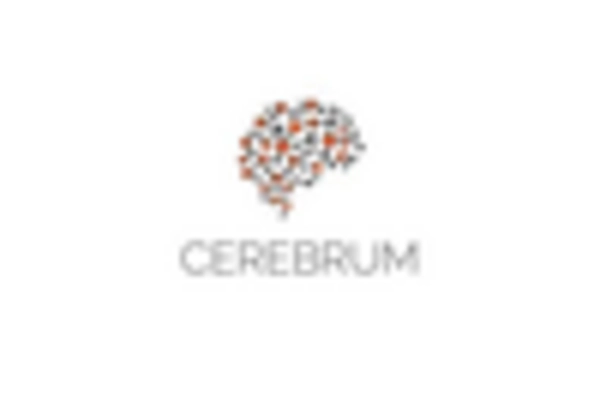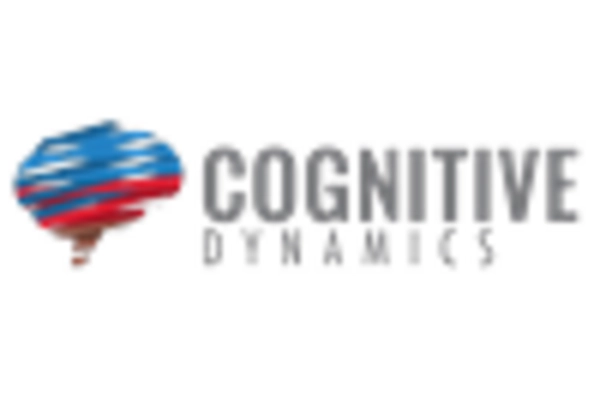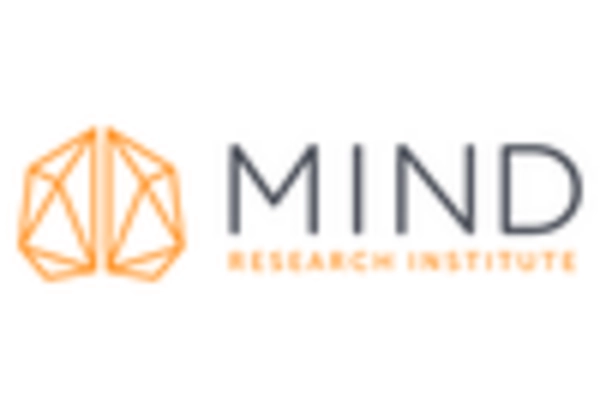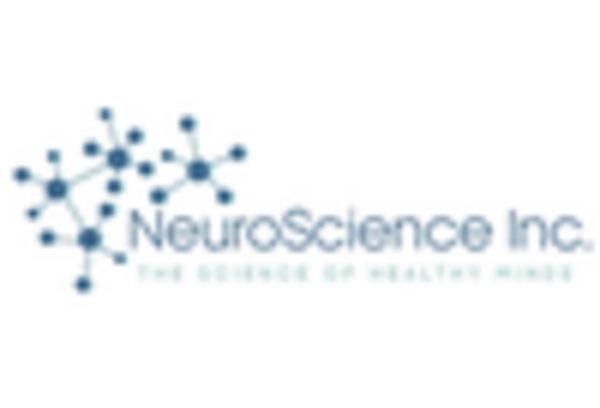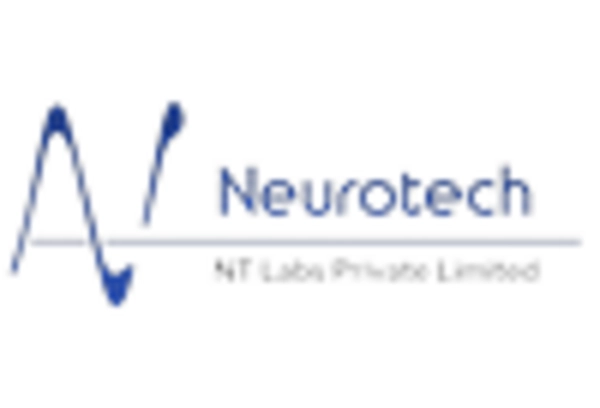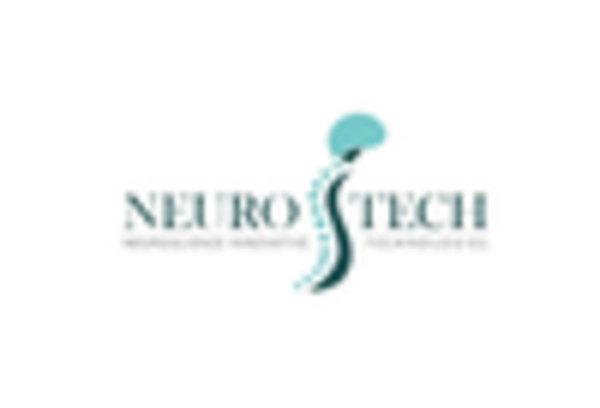Advancements in Neuroimaging Techniques
The Cognitive Neuroscience Market is experiencing a surge in advancements in neuroimaging techniques, which are pivotal for understanding brain functions. Technologies such as functional magnetic resonance imaging (fMRI) and positron emission tomography (PET) are becoming increasingly sophisticated, allowing researchers to visualize brain activity in real-time. This evolution in imaging capabilities enhances the ability to diagnose and treat neurological disorders, thereby expanding the market. According to recent data, the neuroimaging segment is projected to grow at a compound annual growth rate of approximately 8% over the next five years. As these technologies become more accessible, they are likely to drive innovation and investment within the Cognitive Neuroscience Market.
Growing Demand for Personalized Medicine
The Cognitive Neuroscience Market is witnessing a growing demand for personalized medicine, which tailors treatment strategies based on individual patient profiles. This trend is particularly relevant in the context of neurological and psychiatric disorders, where understanding the unique cognitive profiles of patients can lead to more effective interventions. The market for personalized medicine in neuroscience is expected to reach a valuation of several billion dollars by 2027, reflecting a significant shift towards individualized care. As healthcare systems increasingly adopt personalized approaches, the Cognitive Neuroscience Market is likely to benefit from enhanced research funding and collaborative efforts aimed at developing targeted therapies.
Rising Awareness of Mental Health Issues
The Cognitive Neuroscience Market is significantly influenced by the rising awareness of mental health issues across various demographics. As societies become more cognizant of the impact of mental health on overall well-being, there is a corresponding increase in demand for cognitive assessments and interventions. This trend is reflected in the growing market for mental health services, which is projected to expand at a robust rate. The integration of cognitive neuroscience principles into mental health care is likely to enhance treatment efficacy and patient outcomes. Consequently, the Cognitive Neuroscience Market stands to gain from this heightened focus on mental health, leading to innovative solutions and increased funding.
Increased Investment in Neuroscience Research
The Cognitive Neuroscience Market is experiencing increased investment in neuroscience research, driven by both public and private sectors. Governments and institutions are recognizing the importance of understanding cognitive processes and their implications for mental health and education. Recent statistics indicate that funding for neuroscience research has seen a substantial rise, with allocations reaching billions annually. This influx of capital is likely to facilitate groundbreaking studies and innovations in the Cognitive Neuroscience Market, fostering collaborations between academia and industry. As research progresses, new findings may lead to the development of novel therapeutic approaches and technologies.
Technological Integration in Educational Settings
The Cognitive Neuroscience Market is benefiting from the technological integration in educational settings, which emphasizes the application of cognitive neuroscience principles to enhance learning outcomes. Educational institutions are increasingly adopting tools informed by cognitive research, such as adaptive learning technologies and brain-based learning strategies. This shift is expected to create a substantial market for educational products and services that leverage cognitive neuroscience insights. As educational stakeholders recognize the value of these approaches, investment in cognitive neuroscience research within educational contexts is likely to grow. This trend may lead to a more informed understanding of learning processes, thereby enriching the Cognitive Neuroscience Market.


